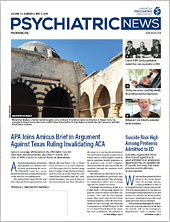Having third-degree relatives—great-grandparents or first cousins—with Alzheimer’s disease may raise a person’s risk of developing the disease, a study published in Neurology has found.
Lisa A. Cannon-Albright, Ph.D., a professor and division chief of the Division of Genetic Epidemiology at the University of Utah School of Medicine, and colleagues studied records from the Utah Population Database, which includes genealogy data of Utah pioneers going back to the 1800s, and compared them with the cause of death listed on Utah death certificates from 1904 to 2014. Of the 149,303 people who died after 1978, Alzheimer’s was listed as a primary or contributing cause of death for 4,436.
The researchers found that even when there is no Alzheimer’s in a person’s first-degree relatives (parents, full siblings, or children) or second-degree relatives (grandparents, grandchildren, aunts, uncles, nieces, nephews, or half-siblings), the risk of Alzheimer’s increases if there are at least two third-degree relatives (great-grandparents, great-grandchildren, great-aunts, great-uncles, or cousins) with the disease in a person’s family tree. Risk increases by 17%, 43%, or 44% if an individual has two, three, or four third-degree relatives with Alzheimer’s, respectively.
“It was a little surprising that even if your closest affected relatives are cousins, you are still at increased risk,” Cannon-Albright told Psychiatric News. “Most clinicians consider only your closer relatives when they ask about family history.”
Cannon-Albright noted the practical implications of the results. “It’s fair to say that everyone spends some time considering their risk as they age. At the very least, having a risk prediction that is somewhat individualized to your own situation can lead to mental preparation for what might come,” she said.
“In the best case, it can also lead to some preventive measures. It’s possible that more aggressive treatment of contributors to vascular disease makes sense for people at increased risk for Alzheimer’s,” Cannon-Albright added. “We hope [our research] will encourage clinicians to take an adequate family history and that it will allow clinicians to provide patients with the best advice concerning their risk.”
This study was supported by the National Institute on Aging, National Cancer Institute, Huntsman Cancer Institute, Huntsman Cancer Foundation, University of Utah, and the George E. Wahlen Department of Veterans Affairs Medical Center. ■
“Relative Risk for Alzheimer Disease Based on Complete Family History” can be accessed
here.

